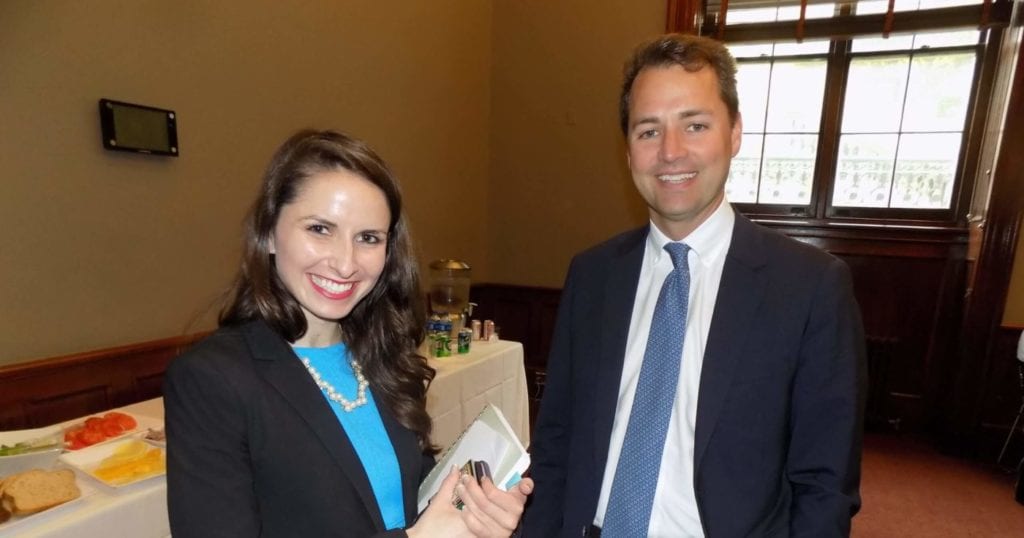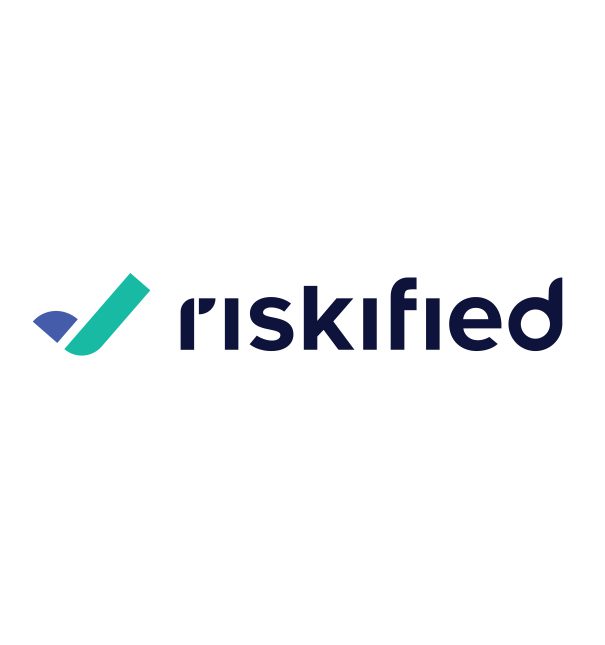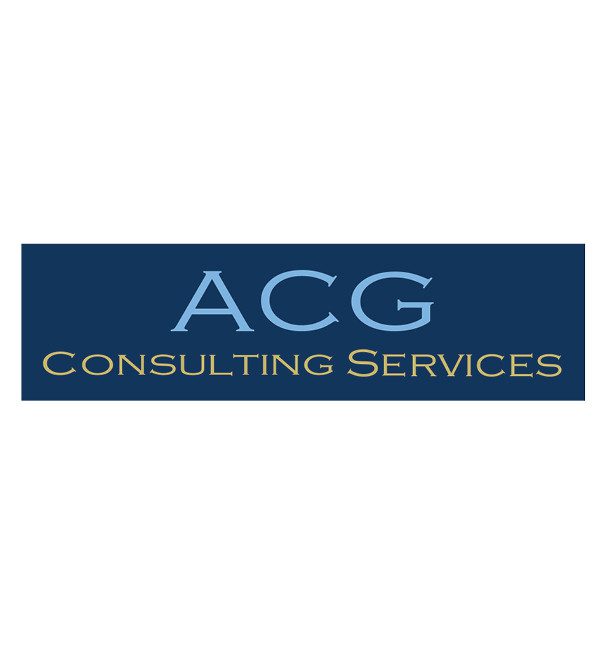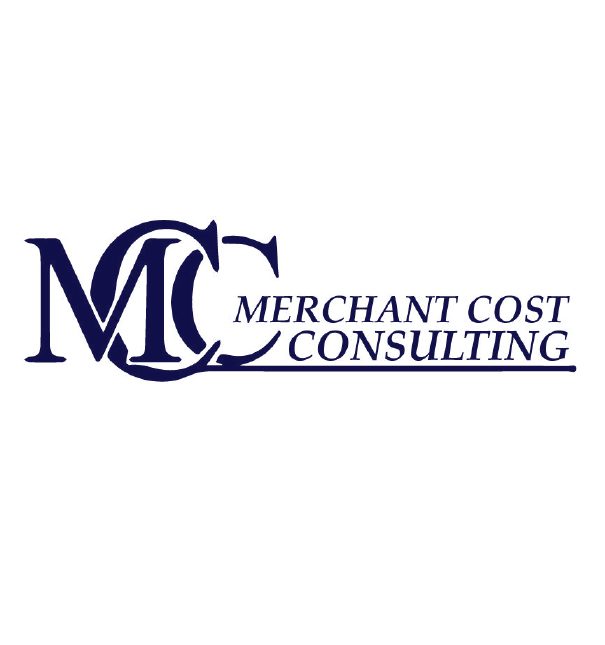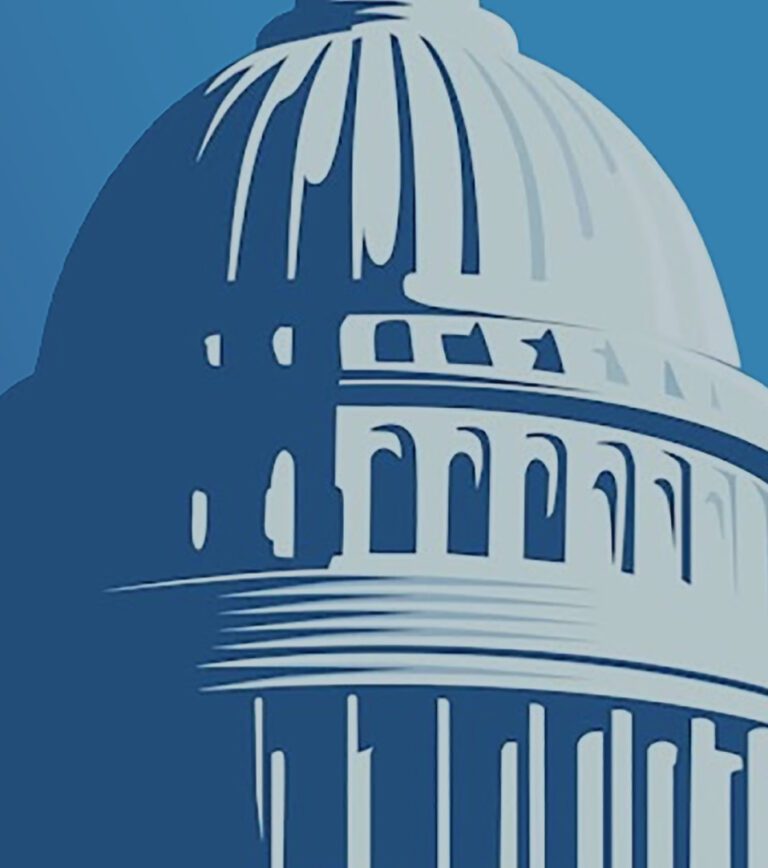Congress left important business for furniture retailers unfinished during 2019. A much-needed tax change wasn’t made before lawmakers adjourned for the holidays.
The Home Furnishings Association will keep pushing for the measure this year.
A drafting error in the 2017 Tax Cuts and Jobs Act (TCJA) blocked retail business owners from deducting the full cost of improving certain property in the year the investments were made. Instead, they are allowed only a small annual write-off over an unrealistic span of 39 years.
Although this mistake was clearly unintended, Congress failed to address it during all of 2018. It appeared that might change in 2019, thanks to efforts by a broad industry group called the QIP coalition. QIP stands for Qualified Improvement Property, the category in the tax code left out for favorable treatment. The coalition was spearheaded by the National Retail Federation and National Restaurant Association. The HFA joined in early 2019.
Encouraged by the coalition, bipartisan legislation that would fix the QIP error was introduced in the U.S. House and Senate. The primary co-sponsors in the Senate are Sen. Pat Toomey (R-Pa.) and Sen. Doug Jones (D-Ala.). Toomey’s press release announcing the bill quoted Matt Schultz, president of HFA member John V Schultz Furniture of Erie, Pa., explaining that the tax error was inhibiting the growth of his business by making new investments too expensive.
Schultz, who leads HFA’s Government Relations Action Team, was far from alone. Because of the limited deduction, many business owners “do not have the capital to make the improvements needed to their facilities and are forgoing or delaying many of these critical investments,” the NRF and National Restaurant Association wrote to congressional leaders Dec. 19. “The cumulative effect on the economy of this slowdown in investment was recently reported by the St. Louis Federal Reserve Bank, which found that investments in non-residential structures have declined by 4.3 percent in the past year, or by about $50 billion. This was the only area of the economy to show an investment decline.”
This negative effect prompted 64 senators of both parties to join Toomey and Jones in co-sponsoring the Restoring Investments in Improvements Act. Nearly 300 House members co-sponsored identical legislation in that chamber. They hoped to include the measure in an omnibus spending package that cleared Congress before Christmas. Despite intensive lobbying, it was left out. Later, Sen. Toomey made another effort to win Senate approval through unanimous consent, but Sen. Brian Schatz (D-Hawaii) objected, killing its last chance for 2019.
The QIP fix, though popular, was a casualty of partisan politics.
“Despite bipartisan support for the QIP fix, Democrats were asking for additional tax policy changes in exchange for helping to fix a drafting error made by Republicans, and the two sides could not come to agreement on those additional changes,” observed Rachelle Bernstein, vice president and tax counsel for the National Retail Federation.
Chris Andresen, vice president of Dutko GR, the HFA’s representative in Washington, D.C., added further analysis:
“The QIP fix maintains strong, bipartisan support within the Trump administration and U.S. House and Senate,” Andresen said. “From a substantive/procedural/practical perspective, it is all set and ready to be included in a broader legislative package.”
The problem, Andresen added, was that Democrats demanded a high price to help fix an error written into the 2017 tax bill since Republicans didn’t include them in drafting the legislation. Given the “broader success” of the tax bill, he noted, “Republicans are not willing to pay such a high price for technical corrections like the QIP fix.”
So, what’s next?
“That brings us to 2020 where the TCJA will be used as the political football in the Trump re-election campaign,” Andresen said. “The president will promote that policy as the single-biggest driver of the economy, and Democrats will continue to vehemently disagree. This will only increase the tensions around the broader issues in Congress.
“The larger problem is that there is not a ‘forcing function’ or deadline associated with any big policy right now. The big driver to the large spending/tax package at the end of 2019 was a potential government shutdown and end of the year/holidays. Without that leverage, especially early in 2020, the prospects make this issue one to be dependent on the 2020 election. If Trump is re-elected, Republicans may have a bit more leverage to push this in a lame-duck session in November/December. If a Democrat wins the presidency, any of the current Democratic candidates have promised to rewrite the TCJA, so any technical corrections would be off the table.”
Supporters aren’t giving up yet, however.
“Sen. Toomey will continue pushing for this measure’s passage in the new year,” Bill Jaffee, the senator’s press secretary, said in an email.
The HFA’s Government Relations Action Team won’t give up, either. It, too, will continue pushing for this tax fix that would help furniture retailers improve their businesses.
Get on board HFA’s Washington Fly-In
The QIP tax fix was a top issue that HFA members addressed during the 2019 Washington Fly-In. It might be again in 2020.
The dates are May 12-14. Participants will gather for dinner in the nation’s capital on Tuesday evening, May 12. On Wednesday morning, they will breakfast with industry allies from the American Home Furnishings Alliance and join them for morning meetings with members of Congress and regulatory agency leaders. That afternoon and Thursday morning, HFA members will hold their own sessions with Washington insiders. The event will end at noon on Thursday, May 14.
The Fly-In presents the opportunity to share industry concerns with key decision-makers and to hear their answers to critical questions. Participants find it a valuable experience.
All HFA members are invited to attend. For details, and to reserve space, contact HFA government relations liaison Doug Clark at 916-757-1167 or dclark@myhfa.org. Senators, representatives and agency leaders all work for us. They need to see and hear from us.
State reports
News of interest from Arizona, Arkansas, California, Connecticut, Florida, Georgia, Hawaii, Illinois, Kansas, Massachusetts, Minnesota, Michigan, Missouri, Nevada, New Jersey, Oklahoma, Oregon, Pennsylvania, Utah, Vermont, and Washington.
Arizona
The “safe harbor” threshold for remote online sellers dropped on Jan. 1 from $200,000 in annual sales to $150,000. When vendors exceed that level of sales to Arizona residents in a year, they will be required to collect Arizona sales tax.
Arkansas
The top individual income tax rate for high earners has been cut from 6.9 percent to 6.6 percent for 2020. However, revenue from online sales taxes is booming. “Collections are strong. It’s exceeded our expectation,” Scott Hardin, spokesman for the Department of Finance and Administration, told KTHV 5News. “You’re generally looking at about $50 million annually generated through online sales.”
California
California’s Bureau of Electronic and Appliance Repair, Home Furnishings and Thermal Insulation became the easier-to-remember Bureau of Household Goods and Services a year ago. It still regulates home furnishings products and, as of this year, all required labels must be updated with the bureau’s new name. That includes labels required by AB 2998, which took effect Jan. 1.
Products already should have been labeled if they contain flame-retardant chemicals at levels of 1,000 ppm or higher. But AB 2998 makes it illegal to sell those products in California. “It is the responsibility of all who sell or distribute covered products to ensure those products do not contain FR chemicals at levels above 1,000 ppm,” the bureau said in an FAQ. “For the purposes of enforcement, responsibility may lie with the manufacturer, importer, wholesaler, retailer or all parties in the chain of distribution.”
The Mattress Recycling Council has named Jennifer Duran as program coordinator for Central California. She will be the primary point of contact for collection sites and recycling participants in Alpine, Amador, Calaveras, El Dorado, Fresno, Inyo, Kings, Madera, Mariposa, Merced, Mono, San Joaquin, Stanislaus, Tulare and Tuolumne counties, MRC says. Duran is also responsible for program tasks including working with recyclers and haulers, expanding the mattress recycling collection network and conducting public outreach and education about mattress recycling. Duran can be reached at Jduran@mattressrecyclingcouncil.org.
A federal district judge has granted a temporary restraining order sought by the California Trucking Association enjoining enforcement of AB 5 for motor carriers. The new law, which took effect Jan. 1, reclassifies many independent contractors as employees. A hearing on CTA’s motion for a preliminary injunction is scheduled for Jan. 13, and challenges from other groups are pending.
The Ports of Long Beach and Los Angeles last month released the draft of an Economic Study for the Clean Truck Fund Rate. A PowerPoint presentation on the study is here. The port is seeking comments by Jan. 31.
The study is a key component of the ports’ proposal to assess a fee imposed on cargo owners to raise money to help purchase zero- or near-zero-emission trucks, the National Retail Federation reports. The study looks at the impact of container fees on cargo diversion and recommends a fee of $10 per TEU on loaded containers to be collected through an entity similar to PierPass. Another entity, perhaps controlled by the South Coast Air Quality Management District, would control the fund created by the fees, which would be used to provide grants for the purchase of zero-emission trucks. It is expected that the Harbor Commission of each port will vote early in 2020 to establish this new truck rate fund with the potential for collecting the fee as early as third-quarter 2020.
Connecticut
The Business Entity Tax of $250 due every other year has been eliminated. It applied to owners of S corporations, limited liability companies and partnerships. The state’s sales-tax base was expanded on Jan. 1 to include many services, including interior design.
Florida
The commercial lease tax, a special sales tax remitted by commercial real-estate owners but paid by their tenants – furniture stores, in many cases – dropped from 5.7 percent to 5.5 percent on Jan. 1. In addition, the corporate income and franchise tax rates have been reduced from 5.5 percent to 4.458 percent.
State Senate President Bill Galvano said last month he does not support forcing Florida’s private employers to use the federal government’s E-Verify system, which checks to see if new hires are authorized to work in the U.S.
“It is something that the Florida Senate – or at least this administration – does not endorse,” Galvano told The News Service of Florida Dec. 12. “It’s putting an additional responsibility on non-government officials.”
For years, attempts to impose the mandate have gone nowhere in the Republican-dominated Florida Legislature. The proposals have faced fierce pushback from Florida’s agriculture, tourism and construction industries, including major GOP donors. But Gov. Ron DeSantis has made the controversial proposal one of his top priorities for the 2020 legislative session, which starts Jan. 14.
Floridians will vote next year on raising the state’s minimum wage to $15 an hour by 2026, an amendment initiative led by Orlando attorney John Morgan that’s already drawing opposition from Republican leaders and the business community, the Orlando Sentinel reported.
Amendment 2 was cleared for the November ballot by the Florida Supreme Court Dec. 19. Court review was the final step after Morgan’s Florida For A Fair Wage collected more than 770,000 of the required 766,200 petition signatures.
If the measure is approved by a majority of voters, the state’s minimum wage – which increased to $8.56 on Jan. 1 – will rise to $10 per hour on Sept. 30, 2021. It would gain another $1 per hour each year until it reached $15 an hour in 2026. Beyond that, the minimum wage would be adjusted annually for inflation.
The proposal will be opposed by business groups such as the Florida Chamber of Commerce and Florida Retail Federation. “This ballot measure will actually hurt the very people its proponent claims it will help,” said Edie Ousley, vice president of public affairs for the Florida Chamber, in an email to News Service of Florida.
Georgia
The online sales-tax threshold was lowered Jan. 1 from $250,000 to $100,000. When remote online vendors exceed that amount in annual sales to Georgia residents, they must collect and remit sales tax.
Hawaii
The estates of residents who die during 2020 will be taxed at 20 percent on value exceeding $10 million.
Illinois
Gov. J.B. Pritzker last month signed amendments to the Illinois Cannabis Regulation and Tax Act that clarify employer rights to enforce reasonable workplace drug policies, Drinker Biddle’s LaborSphere blog reports. Recreational marijuana use became legal in Illinois on Jan. 1. “As originally drafted, the Illinois Cannabis Act created confusion for employers as to whether they could lawfully test and/or discriminate against applicants who tested positive for cannabis, based on pre-employment and off-duty use of the drug.”
Employers may conduct “reasonable drug and alcohol testing, reasonable and nondiscriminatory random drug testing.” Failure of a drug test may trigger discipline, termination of employment or withdrawal of a job offer. Drinker Biddle recommends that employers consider adopting workplace policies and procedures to (1) address work-related possession and use of cannabis and cannabis-infused products, and (2) publish any post-offer or other employment-related drug testing procedures applicable to applicants and employees.
Kansas
Interior design and decorating are among the services the Kansas Chamber suggests could be subject to sales tax as part of an overall tax restructuring. The proposal was part of a report issued by the business organization last month titled, “Kansas Tax Modernization: A Framework for Stable, Fair, Pro-Growth Reform.” Taxing more services would conform the tax code to the modern economy, according to the report, but would be paired with an overall lowering of the sales-tax rate. Or, better, with cuts to the corporate and personal income-tax rates, which “would be more pro-growth than simply reducing the sales-tax rate,” the report said.
Deductions for real estate and personal property taxes will be allowed on state tax returns at parity with federal provisions for 2020.
Massachusetts
The state’s individual income tax rate has declined from 5.05 percent to 5 percent for 2020.
Minnesota
The estate tax exemption increased to $3 million on Jan. 1.
Michigan
Gov. Gretchen Whitmer signed legislation in December to ensure that Michigan’s 6 percent sales and use taxes are collected on more items sold through websites such as Wayfair, Overstock, and Amazon, the Detroit Free Press reported.
The laws could generate an additional $90 million in revenue per year, mostly for public schools. The new measures codify state guidance that requires out-of-state sellers to pay taxes if they exceed $100,000 in sales or have 200 or more transactions in Michigan.
The laws also require “marketplace facilitators,” such as eBay, that meet one of the thresholds to remit sales and use taxes on behalf of independent sellers regardless of how many transactions the seller has recorded in Michigan.
The Michigan Retailers Association applauded the Democratic governor and Republican-led legislature, calling the laws an “early Christmas present of sale tax fairness.” It said the measures bring in-state businesses closer to true sales-tax parity with out-of-state online companies.
Missouri
Missouri is missing out on up to $130 million in lost tax revenue annually, according to Missouri Budget Project’s Brian Colby. The organization’s vice president of public policy faulted the state’s failure to enact a law requiring remote online vendors to collect tax on sales to Missouri residents. In addition to costing the state revenue, the sales-tax disparity is unfair to brick-and-mortar businesses, Colby told KMOX-AM.
A state Senate bill has been introduced to implement online sales-tax collection. It would:
- Impose a use tax collection obligation on remote vendors with at least $100,000 in cumulative gross receipts from the sale of tangible personal property in the state in the previous 12-month period (effective October 1, 2020)
- Require marketplace facilitators meeting the above threshold to register with the Missouri Department of Revenue and collect and remit sales and use tax on direct and third-party sales in the state (by Jan. 1, 2022)
- Require the Missouri Department of Revenue to create and maintain a mapping feature for use tax information
- Require the Missouri Department of Revenue to provide and maintain a downloadable electronic database of taxing jurisdiction boundary changes and tax rates
The state’s corporate income tax rate drops from 6.25 percent to 4 percent for 2020.
Nevada
Starting Jan. 1, counties were authorized to collect local diesel taxes of up to 5 cents per gallon in addition to the state levy on motor fuels.
New Jersey
A super-majority of New Jersey lawmakers passed a proposed ballot question Dec. 16 to legalize recreational marijuana, putting the referendum before voters on the 2020 ballot, the New York Daily News reported. The Democrat-led Assembly passed the measure 49-24, with one abstention, while the Senate passed the question 24-16.
The proposal does not need to go before Democratic Gov. Phil Murphy, though he supports marijuana legalization.
The question asks voters if they’ll approve recreational cannabis for people 21 and older. All sales of marijuana products would be subject to the state’s 6.625 percent sales tax, and towns could pass ordinances to charge local taxes as well.
Oklahoma
“The wide-open days of internet tax piracy appear to be fading … and good riddance,” the Tulsa World declared in a Dec. 28 editorial. The newspaper explained that year-end sales- and use-tax collections are sharply up, thanks to a new requirement that remote online vendors collect taxes on purchases by Oklahoma residents.
“Traditional brick-and-mortar retailers have always collected sales taxes, but until 2018, out-of-state online retailers routinely didn’t. Oklahoma consumers were supposed to report the use tax they owed with their income taxes every year, but many didn’t. Under increased pressure from the state, online retail giant Amazon started collecting the taxes last year. Then the U.S. Supreme Court ruled all retailers had to do so.”
Oregon
A Corporate Activity Tax took effect Jan. 1. It is a 0.57 percent tax on gross receipts above $1 million.
Pennsylvania
Starting in 2020, businesses that have at least $500,000 in annual gross receipts sourced to Pennsylvania must file a Pennsylvania Corporate Net Income Tax return, even if they don’t have a physical presence in the state.
Utah
Lawmakers passed a tax overhaul in December that includes:
- A $160 million income tax cut
- A sales tax on some services
- Restoring the earned income tax credit
- Hiking the sales tax on food and groceries (but repealing the tax on feminine hygiene products)
- Offering “pre-bates” for low-income people on the grocery tax, and adding a dependent credit
- Raising some taxes on fuel
- An income tax credit on Social Security
Overall, Fox13 reports, Utahns would see an income tax decrease under the Republican-led plan. For example, a family of four making $60,000 would see about a $400 decrease in their income taxes. However, the plan has faced significant public pushback because of the hike on food, gas, and services.
Vermont
The estate-tax exemption for 2020 has increased from $2.75 million to $4.25 million.
Washington
A law that took effect Jan. 1 creates a three-tiered Workforce Education Investment Surcharge to train Washington students for Washington jobs, according to the Washington Department of Revenue. This surcharge is in addition to the service and other activities business and occupancy tax rate of 1.5 percent.
The first tier is a 20 percent surcharge on select businesses primarily engaged (meaning more than 50 percent) in any combination of specified activities, which include design services. This will set an effective service and other activities B&O tax rate of 1.8 percent.
